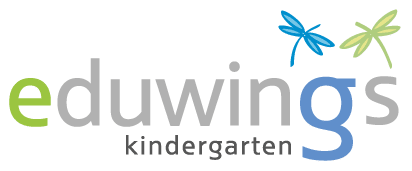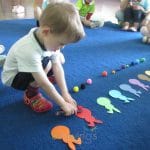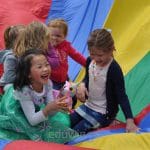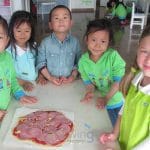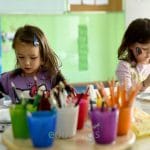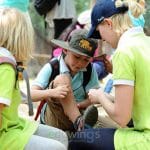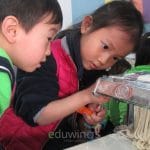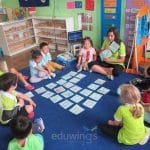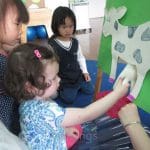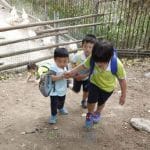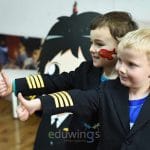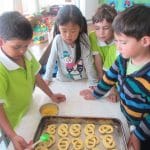It is our mission to ensure that students can grow up independently and learn to manage their young life by themselves with our guidance and support. We do not teach them by making the children repeat or copy us just for the purpose of being a “good girl/good boy”. We want to educate them to understand why we need to follow certain procedures and rules in our life and why self-discipline is important. We do encourage our young learners to ask questions, and to be open and interested in new things. We want to open their mind for new cultures and friends. We do our best to let Eduwings students feel the joyfulness and passion of learning because learning is delightful.
Besides this mission, we care for each single student and support – not correct – each child´s character. We take care for the individual needs of each child by teaching them to act social and feel for other children and adults.
We respect the natural environment of each child. Instead of changing them, we want to offer as many as possible natural learning settings and opportunities for the social, physical and academic education. We trust our students, give them freedom to grow, make their own experiences and discover life.
During our “circles” and “learning tasks”, we encourage our students to concentrate and be focused, and show passion for the procedure and result. That way we educate confident and self-aware children.
We teach with real materials, in real settings and with different, custom-made teaching methods. As often as possible, we go on field trips and outings with the children and use their interests in topics to teach them all necessary skills to manage life before going to primary school.
We never punish our students, but we confront them under our guidance with the natural consequences which might happen in life.
We use the “Virtues” way to see every child as a seed: every child is born as a different seed, but all of them will be plants in the future. For us, it does not matter that the plants are different; we will give them all conditions to bring out the best of each seed to let it grow into a very meaningful and unique plant.
We are not THE BEST kindergarten; we hope to be the BEST CHOICE for your child.
We don´t have THE BEST philosophy as our philosophy is just matching for our children, and it is based on their needs.
